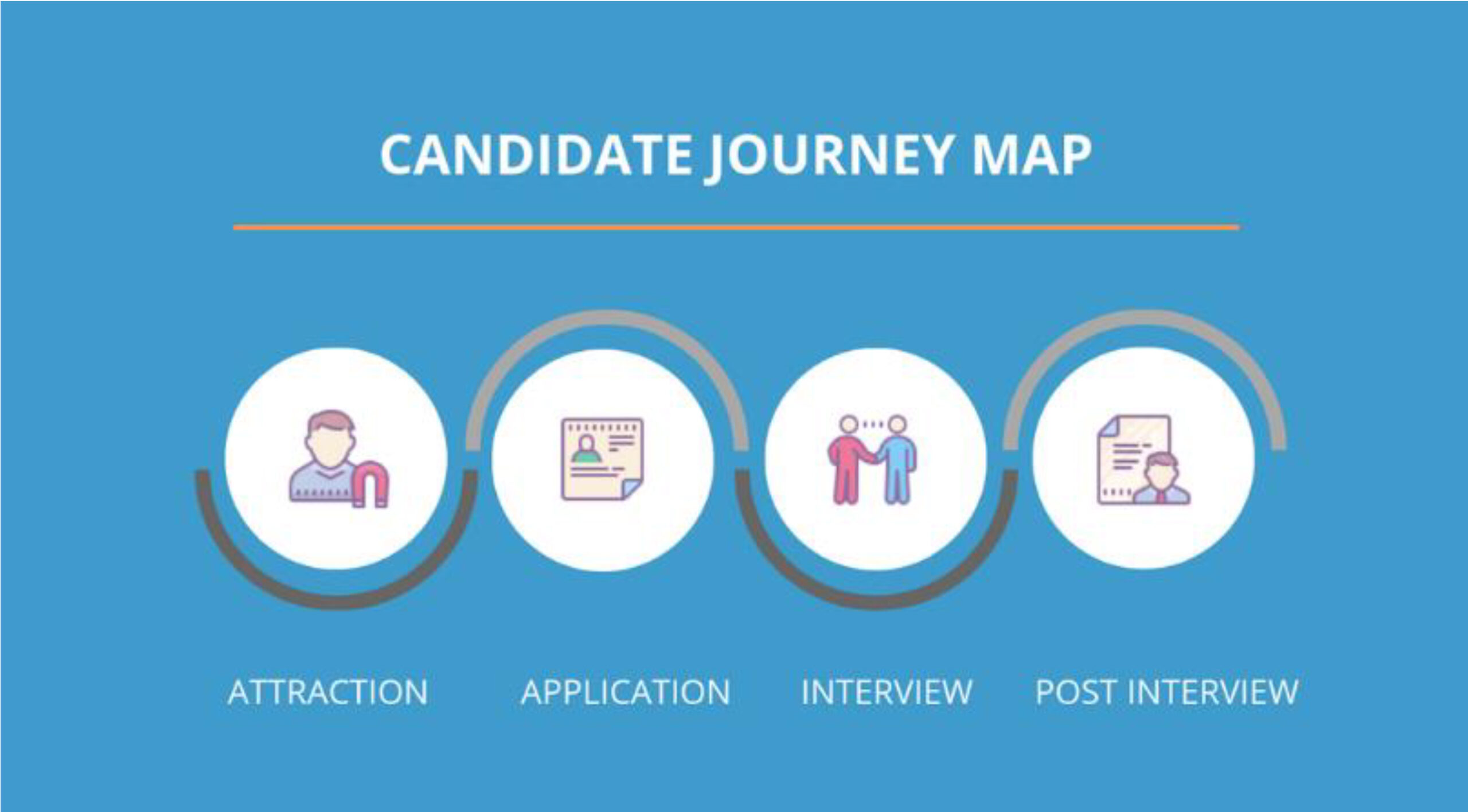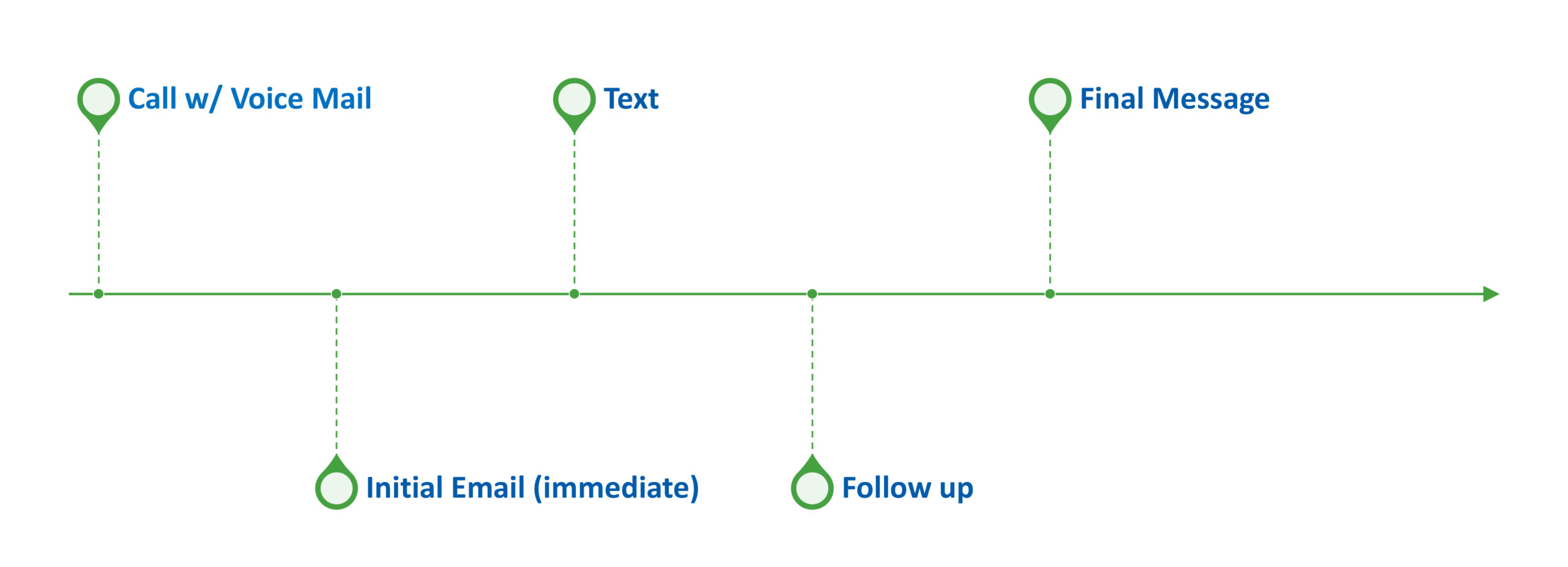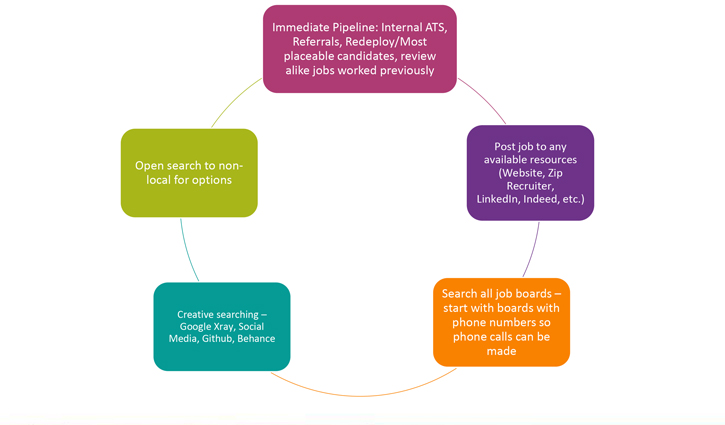
Want the Best Candidates Available? Use these Best Practices in Recruiting to Ensure Success
Successful recruiting is challenging and requires staffing firms to proactively motivate their recruiters to find the best candidates for each job role. Recruiting best practices should involve continual learning and education. Continual improvement and review prevent bad habits from developing. For companies or agencies with entry-level recruiters, or those with little experience, this becomes significantly more important to keep recruiting on the right track, long-term. Staffing workers should always seek to improve the procedures used by their recruiters. There are a few best practices that are worth implementing and some simple changes to keep your recruiting fresh and innovative using modern recruiting techniques.
Keep Track of Your Candidates
Some of the improvements to best practices aren’t necessarily difficult to identify – and modify – when needed. For example, one best practice is to carefully audit the talent pipeline with an applicant tracking system (ATS), so you can track candidates throughout the entire recruiting and hiring journey. The recruiting process ideally is maximized for efficiency so placeable candidates can be identified, then expedited – with other applicants quickly filtered out.

Structure and Scheduling
A common-sense best practice is ensuring the recruiting process is streamlined. This is essential, as “time kills all deals,” according to Kurt Scholl, VP of Recruiting, at BravoTECH. Candidates have an open market to explore opportunities, so they can schedule multiple job interviews – don’t waste time pursuing applicants. Keep in communication with them, track their progress, and follow up regularly via text, email, and phone. Make that personal connection with your candidates so they remember you. Per Dave Templeman, Senior Technical Recruiter, Turnberry Solutions Group, “…it’s every little thing that you do that is going to differentiate yourself from the pack is going to get you to where you want to go. Don’t put off contacting candidates, as procrastination creates anxiety and stress, so it’s essential to have a “do it now” mentality while speaking with possible leads.
Adopting a proper routine – both short-term and long-term projects – requires definitions of what your objectives are. This routine will be different for everyone on your team, though remaining flexible and driven is expected. Maggie Wall, Director of Recruiting, National Delivery & Training and Development, Swoon Staffing, has her new recruiters use a dashboard to keep track of each candidates’ process, “…time blocking is huge for us. It’s a requirement.” Practice and experience help provide ideas, but there isn’t a correct way to do everything.

Tools to Aid Candidate Journey
An obvious best practice is metrics. Ignoring metrics simply isn’t feasible in any part of the business world. Teams need to set expectations of how many contacts are reached, the number of total hirings per month, and which applicants receive a response. Noel Wolf, Managing Partner, Collinwood Technology Partners, stated how even internally, “Everyone always wants to compare and contrast what everyone does in our organization.” Your company’s metrics might be based on submittals and financials, while others may track, calls, emails, and texts. You must do what works for you and your team.
Another tool, next to metrics is sourcing. Where or what are recruiters using as sources to find candidates? Scouring LinkedIn to reach candidates is one option, but there are services ZoomInfo, Dice, and Lead411 to search work data for you. When you utilize these sites, it is important to know what is required for your positions, to close the best candidate available. Start with the tools and job boards that feature phone numbers, as this will get you the most personal connection. “I like making a call. I think that more than anything that differentiates us because so many recruiters are email and LinkedIn message recruiters for that initial touchpoint,” states Templeman.
Many different applicant tracking systems are available to provide candidate engagement and other streamlined services. Research and try demos of software platforms such as Journey, Bullhorn, or a competing product. A certain level of aggressiveness must be present in recruiting, so always ask vendors or software companies questions to identify what is best for your needs.

Cold Candidate Cadence
The main goal is to make a connection with the candidate when you find them. The personal touchpoints, the follow-up, and the follow-through. Templeman states the importance of this, “the concept is what we’ve always needed, which is continuous candidate engagement with our candidate pool.”
A solid effort to build bridges is professionally sound, even if a person doesn’t make it through the interview process. A simple email to inform the candidate that you’ll be in touch if something else comes up is greatly appreciated – and forges a new contact, with potential value later down the road.
Remote, On-site, Hybrid?
Now that the work world is emerging from a tumultuous time with COVID-19, more people are returning to the office. Recruiters working with clients face the rocky challenge of wooing candidates back into the office – or offering hybrid employment – and recruiters must educate their clients about the current reality of the recruiting market.
Hiring managers must be consciously aware that many IT candidates are willing to decline an interview or job if specific demands cannot be met. Some positions will not be successful if fully remote, so on-site or hybrid attendance is required – and a middle ground must be met. Wall stated that her sales and hiring mangers work together, as the sales team needs to educate the hiring managers and clients of potential talent differences based on remote, hybrid, and in person work, “…here’s what you will get if you require somebody who’s a hundred percent on site, here’s a sample resume. If you are allowing somebody to be a hundred percent remote, here’s the better talent that you could get.”
Besides geographic location, aspects, such as start and finish times, should also be considered. Small businesses could better compete with larger organizations by offering flexible scheduling, and flexible locations.
The Future Remains Uncertain
Attracting and retaining top talent is difficult, so do not overlook selling the company.
IT recruiting will likely remain challenging, with supply and demand issues leaving a shortage of skilled candidates. To end 2022, December IT employment dropped 0.13% month-over-month, and the IT unemployment rate amounted to just 2.1% during Q4, according to TechServe Alliance data.
More effort in expanding reach by searching diverse talent pools is necessary. This effort should be centered not only on expert candidates but on candidates with the right personality for the company and a willingness to learn. Don’t overlook assets that can be trained.
Final Thoughts
Don’t be afraid to try new things that can help broaden your expertise as a recruiter. Make sure to learn both the recruiting wins, and from the losses when a candidate goes elsewhere.

Sourcing Roadmap / Checklist
There is no agreed-upon master plan for IT recruiting, and you shouldn’t expect one. Instead, you can broaden your knowledge with research, while also identifying aspects that can improve later the process. Keep in mind the fundamentals that comprise the best practices during your workday and your strategy in recruiting. Organization, personal touch points, tracking applicants, and most importantly being timely (not procrastinating) can make all the difference in landing the best candidate for the job.
To learn more about best practices for your recruiting efforts, Members please watch our recent best practices panel webinar. Not a member? Contact us at [email protected] to learn about membership benefits that will improve your firm’s growth and success.
